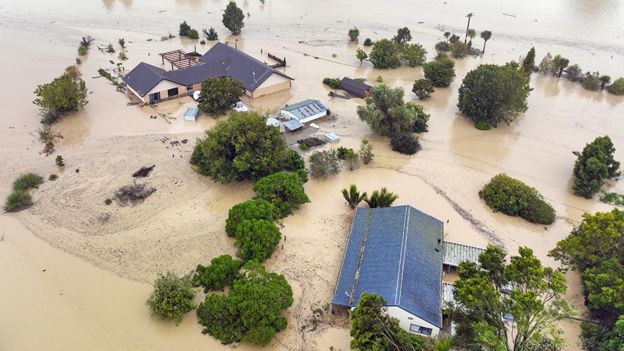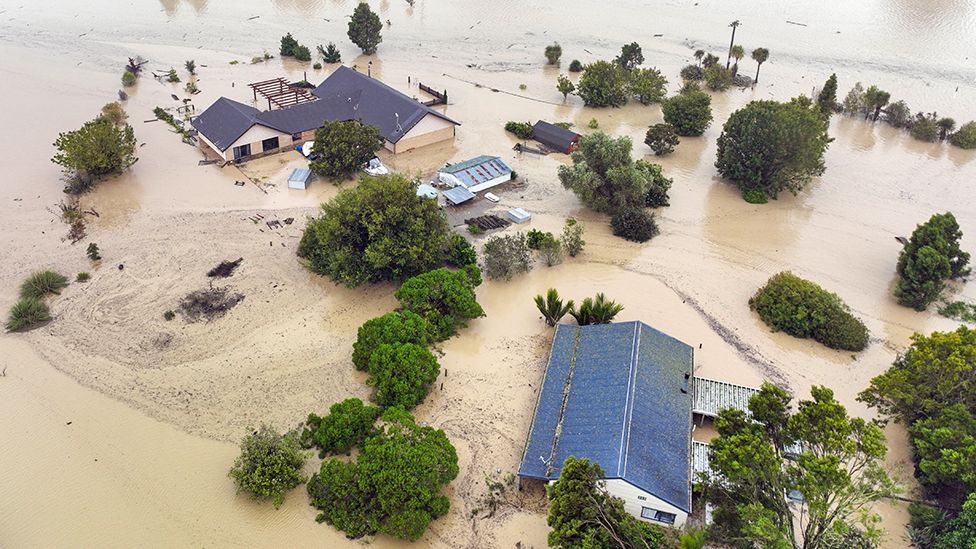On Tuesday a state of emergency was declared in New Zealand as residents struggled to deal with the devastation left by Cyclone Gabriel. It is the country’s biggest weather event in a century, according to Prime Minister Chris Hipkins.
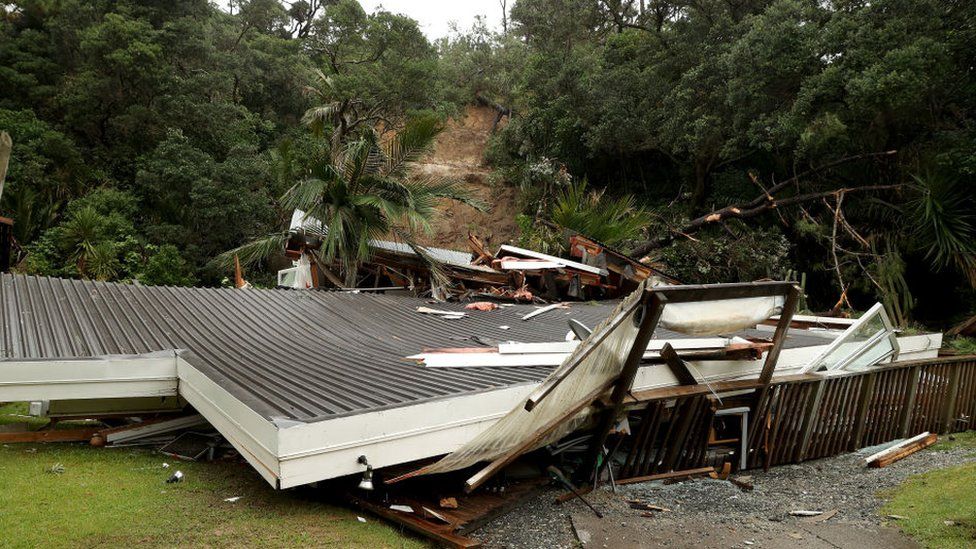
There have been several landslides in Muriwai, a coastal community on the north-west coast of New Zealand’s North Island.
They have destroyed all roads and buildings in their path.
One firefighter remains missing in Muriwai after being caught in a landslide, and a second firefighter was critically injured.
At one stage on Tuesday the search for the missing firefighter had to be suspended because the ground was so unstable.
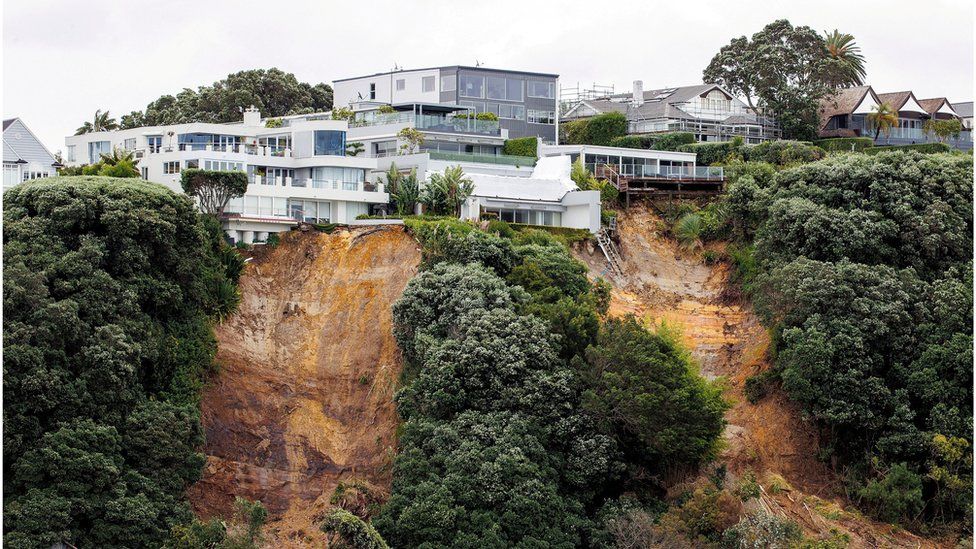
Other houses, like these ones in Auckland, have been left perilously close to the edge of landslides that remain unstable.
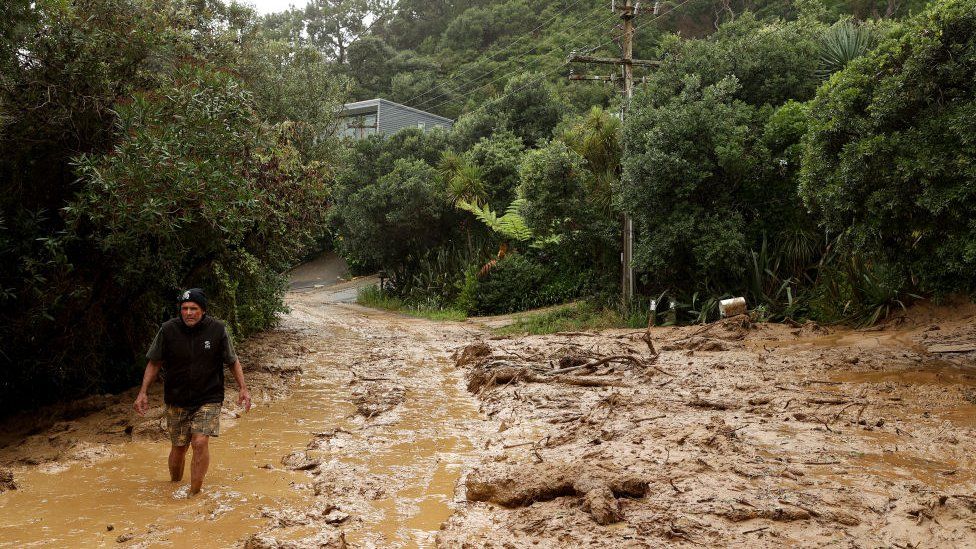
A resident of Muriwai walks through thick mud – the remnants of a landslide.
Nearly a third of New Zealand’s 5.1 million population live in the affected regions, and hundreds of thousands of houses were left without power at the peak of the storm.
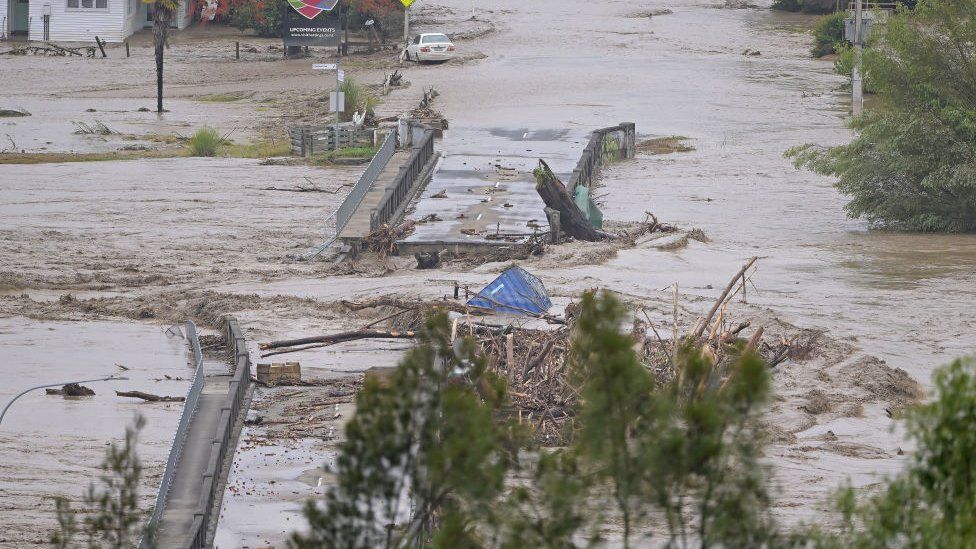
The Waiohiki Bridge on the Tutaekuri River is one of at least six bridges in the area that have been washed away.
Local media in nearby Hawke’s Bay reported that some residents had to swim through their bedroom windows to escape the flood waters.
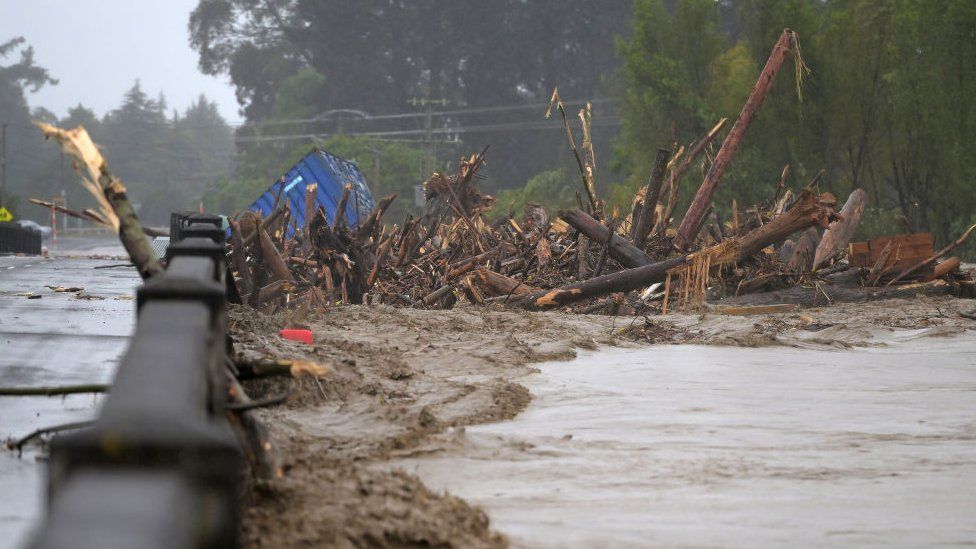
Other bridges on the Tutaekuri River remain standing, but have been closed because of a build-up of dangerous debris.
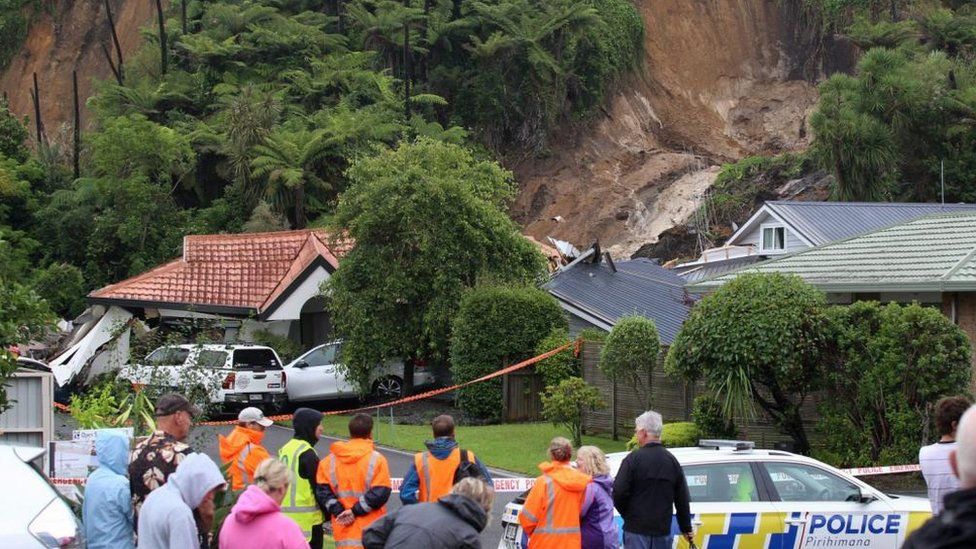
The cyclone caused the evacuation of many coastal towns, including the city of Tauranga.
In some towns the army has been brought in to support emergency services.
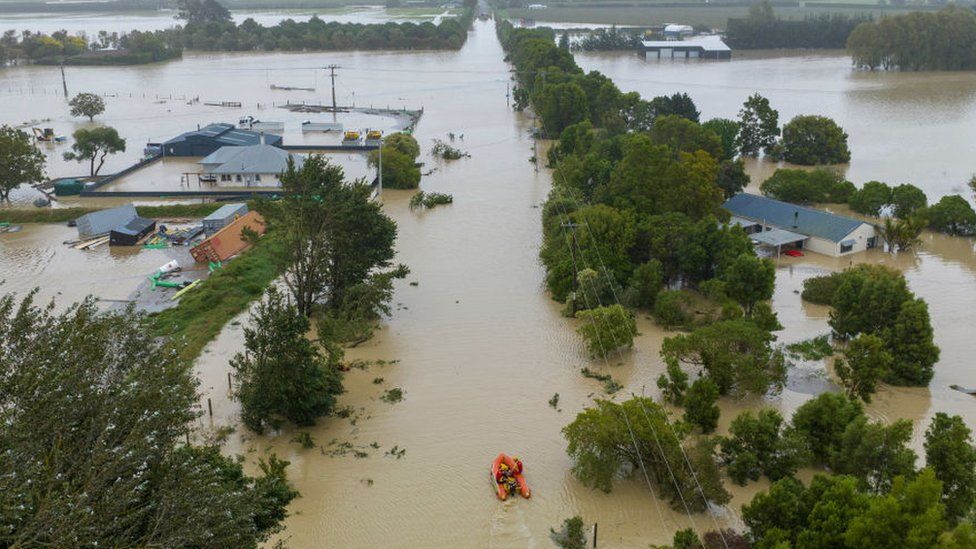
Aerial views show the extend of the flood waters, as a rescue boat searches for people stranded in their homes in Awatoto, near Napier.
All pictures subject to copyright.

